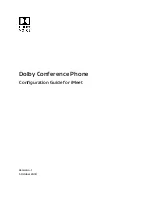
RM-583
Baseband Description and Troubleshooting
COMPANY CONFIDENTIAL
Copyright © 2009 Nokia. All rights reserved.
Page 6-
7
Issue 1
Platform Introduction
QSC1110
QSC111x family of devices represents the next generation of chipset architecture and enhancements for
QCT multimedia tier of products.
QSC1110 supports a 153.6 kbps airlink and expands the feature list with increased multimedia
performance and added functionality:
z
Bluetooth® connectivity (with external BTS4025™ SoC)
z
Secure Digital Connectivity (SDCC 2.0)
z
Camera and video support
z
Higher processor and memory clock rates
z
Mobile display processor (MDP)
Airlink and multimedia capabilities are supported by integrating Mobile Station Modem™(MSM™)
baseband, radioOne ® RF and power management functionality into a single 10 mm ×10 mm chip-scale
package (CSP). Together these functions perform all the signal processing and power management
tasks within a subscriber unit. This enables reduced handset complexity, cost, time-to-market and
board-space requirements while providing many features and functionalities.
The global expansion of 3G CDMA 1X networks has extended the availability of high-speed, wireless
data access. With increased accessibility comes increased demand for wireless devices that function as
cameras, MP3 audio players, gaming consoles and phones. To efficiently support next-generation data
speeds and functionality, wireless devices must integrate an applications processor with
high-performance modems. The QSC11xx devices extend the level of integration to include radio
frequency and power management functions.
3G products based upon QSC1110 device may include:
z
Voice and data phones
z
Music player-enabled devices and applications
z
Camera phones (QSC1110 device only)
z
Multimedia phones including gaming, video and more
z
Wireless connectivity — Bluetooth (QSC1110 device only), FM radio (with RDS)
To simply describe this highly integrated device, topics are addressed within three major categories that
















































